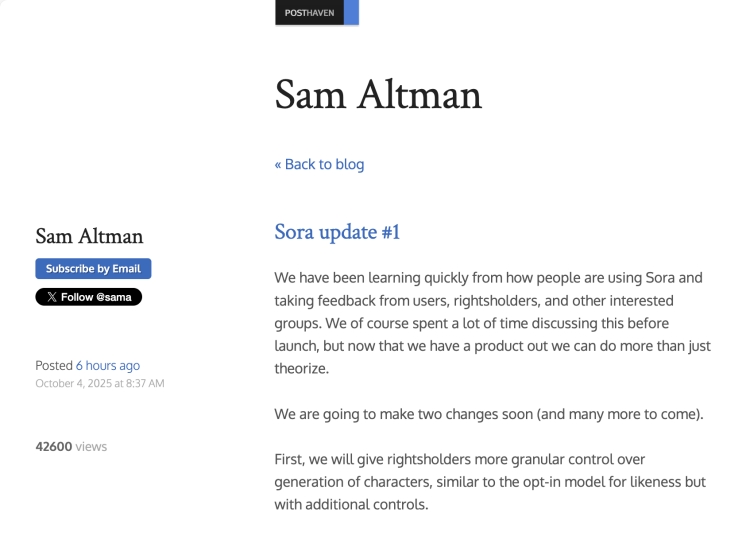Sora 2 Surges in Popularity Post-Launch, OpenAI Eyes Profits via Shared Copyrights
![]() 10/09 2025
10/09 2025
![]() 505
505
Following the release of Sora 2 by OpenAI, the application swiftly ascended to the top of the App Store charts in the United States and sparked considerable buzz across social media platforms. With heightened exposure, the question arises: How can OpenAI translate this popularity into profits? In a recent podcast, OpenAI's CEO, Sam Altman, shed light on preliminary commercialization strategies for Sora 2.

Sam Altman disclosed that OpenAI intends to offer copyright holders, including film and television studios, 'more nuanced role generation control rights.' This means that entities like TV and film companies can opt to entirely restrict the use of their owned characters, images, and other intellectual property (IP) by Sora users for video creation purposes.
Altman further elaborated on OpenAI's plan to implement a revenue-sharing model. He wrote, 'We aim to distribute a portion of the earnings to copyright holders who permit users to generate content featuring their characters.' Recognizing that the precise structure of this innovative approach 'will necessitate some experimentation,' Altman indicated that related trials would commence shortly, with the potential for expansion to other OpenAI product lines upon successful implementation.
It's noteworthy that Sora's design and operational philosophy, along with its user interface, bear striking resemblances to those of Douyin (TikTok). For instance, features like swiping up to view subsequent content and tapping the central plus sign to input instructions significantly streamline the user experience, facilitating rapid comprehension and mastery of the new application—a key factor contributing to its widespread appeal.
Evidently, OpenAI's ambitions extend beyond merely becoming a technology provider; the company appears to be positioning itself as a pioneer in constructing a brand-new AI-driven content ecosystem platform. However, copyright issues have consistently been a contentious point for such products. Industry titans like Disney have unequivocally stated their opposition to their IP appearing in Sora-generated videos, and Hollywood has adopted a cautious approach. Consequently, some analysts posit that OpenAI is proactively engaging with content creators and copyright holders, striving to establish a sustainable business ecosystem before legal disputes fully escalate. Others, however, contend that defining 'fair use,' accurately tracing IP origins, and equitably distributing revenues will pose significant technical and operational hurdles for this model.








